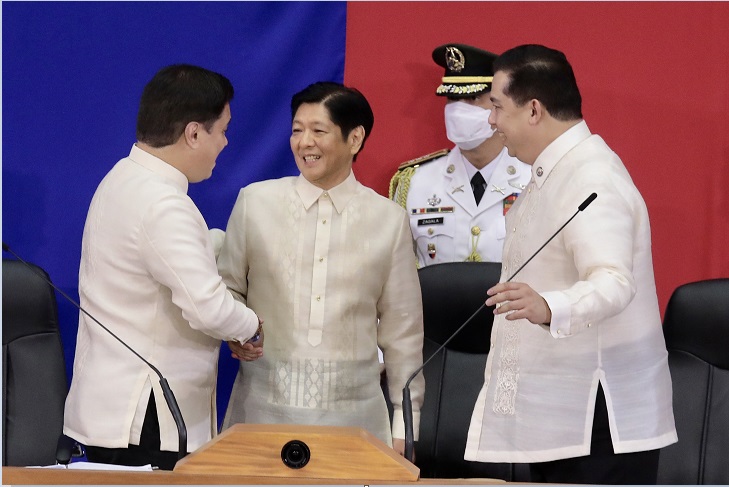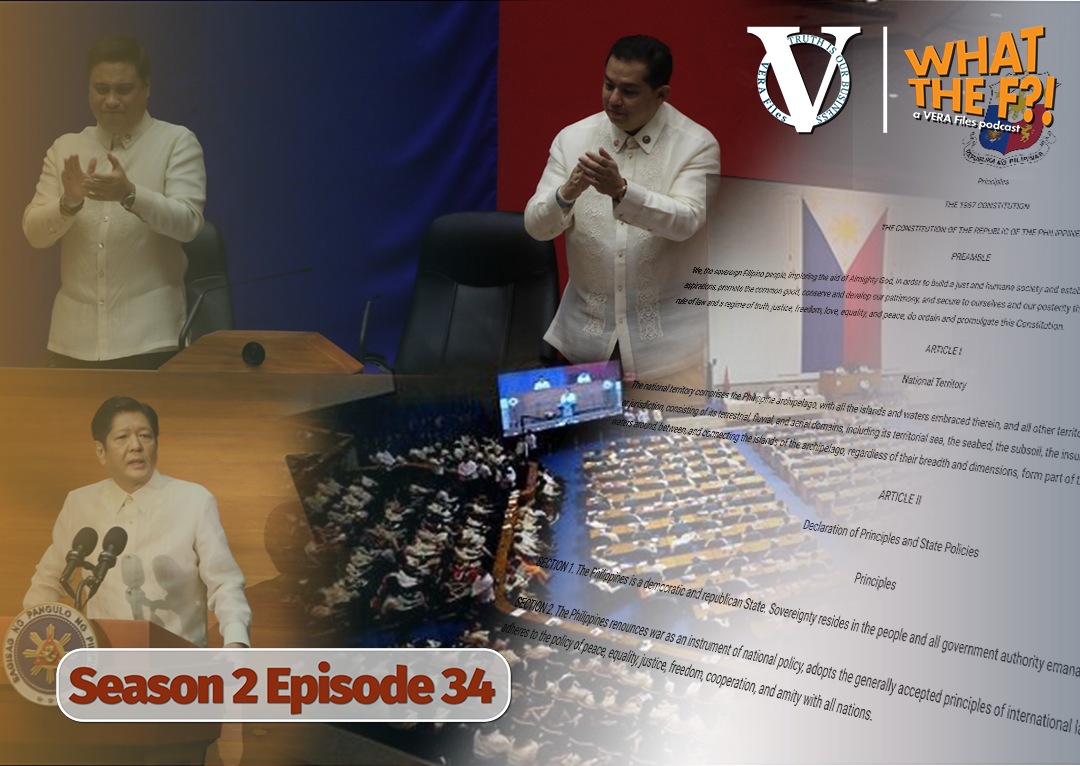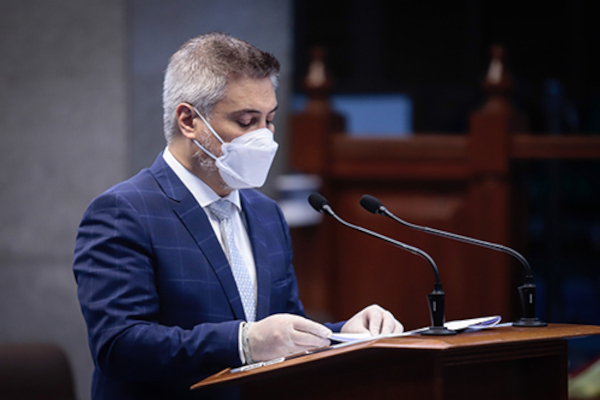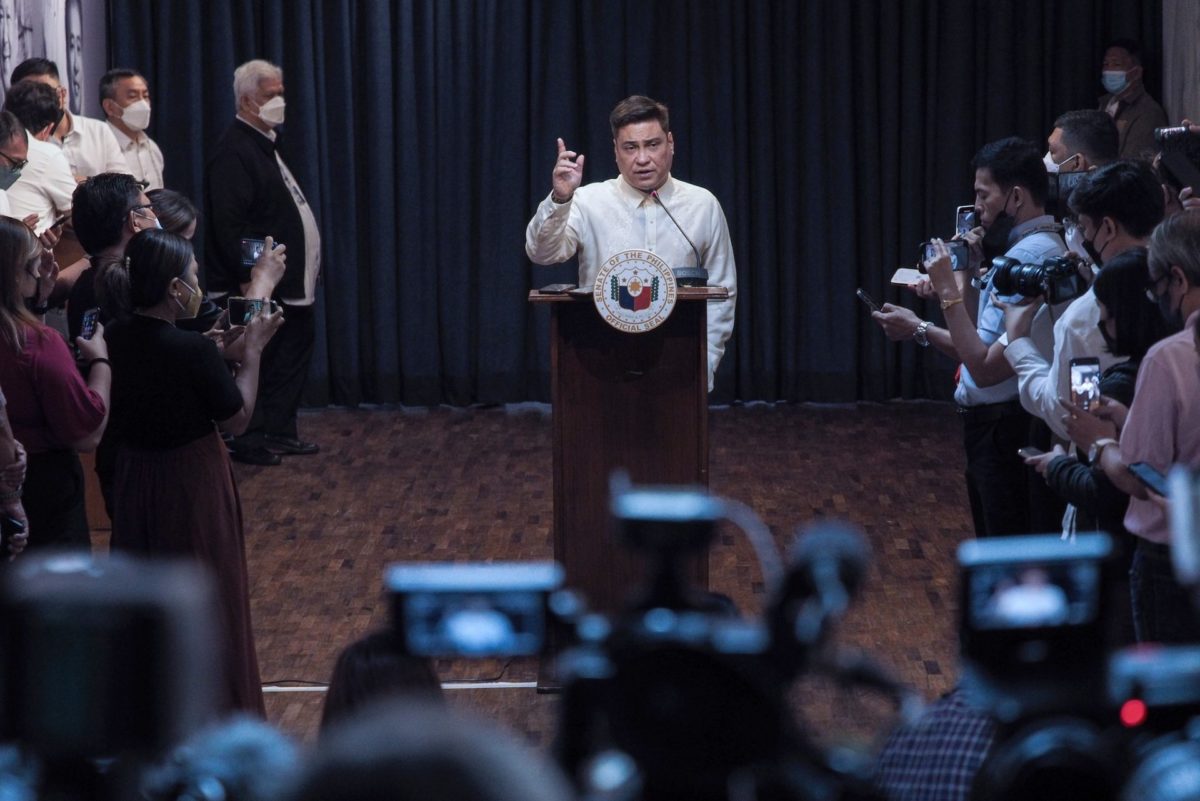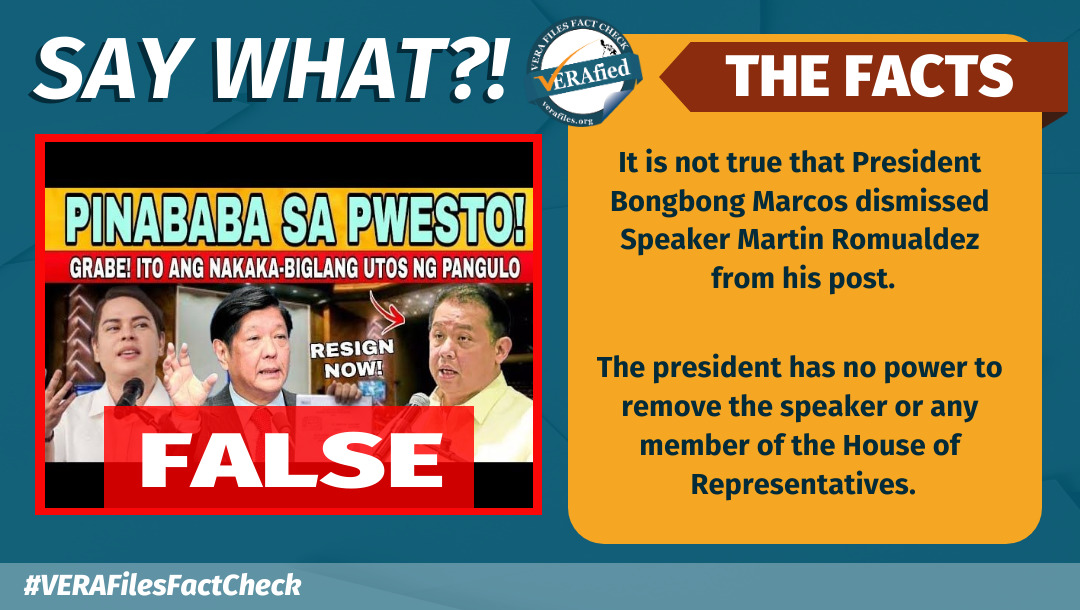Congress leaders have given an assurance that the legislature won’t be a rubber stamp of the president despite having a so-called supermajority in both the Senate and the House of Representatives and presidential relatives occupying important positions in both chambers.
“We will study with a fine-tooth comb all proposals that will be submitted to us,” said Senate President Juan Miguel Zubiri in a recent interview.
House Speaker Martin Romualdez, a first cousin of President Ferdinand Marcos Jr., has been less vocal about asserting the bigger chamber’s independence from the executive branch. As in previous congresses, the House leadership of the 19th Congress appears to be more cooperative in pushing the president’s legislative agenda.
Keeping the support of the “supermajority” that elected him to the third highest political position in government seems more important to Romualdez as he promised to “be as fair as possible and to favor no one,” particularly in the distribution of resources (read: pork barrel) to the lawmakers.
Of the 309 House members, 282 voted for Romualdez, four abstained and 22 did not vote.
Romualdez echoed the line of the president in his State of the Nation Address (SONA) on July 25 to prioritize measures that would help get the country out of the coronavirus disease-19 (COVID-19) pandemic and sustain its economic recovery.
While Zubiri has been consistently vowing to assert the independence of the Senate, Romualdez has been emphasizing pursuing the administration’s unity agenda.
In previous congresses, the Senate has shown itself to be less subservient than the House, but the situation is different now with a decimated minority. Won’t pursuit of independence collide with the supermajority’s mantra of unity?
The independence or subservience of Congress will be put to a test when Malacañang submits to the House later this month the Marcos administration’s proposed budget for the national government in 2023, its first full year appropriation.
Will the “supermajority” subject each of the budget items to scrutiny with a fine-tooth comb or just approve those without much thought as a show of unity to the administration?
What if the administration pushes amendments to the 1987 Constitution and opens the door to provisions that would remove term limits and restore provisions in the 1973 Constitution?
Congress leaders owe their positions to their colleagues who are allies of the president. They would lose their positions of power once these allies feel that they are going against the wishes of the president. Up to what extent and until when can they assert and fight for independence?
Although the president ran under the banner of the Partido Federal ng Pilipinas party, it is Lakas-Christian Muslim Democrats (Lakas-CMD) that has the biggest membership in the House. Romualdez is Lakas-CMD’s current president while Pampanga representative and former president Gloria Macapagal Arroyo is its president emeritus.
Romualdez was voted into the speakership with the support of the Nacionalista Party, Nationalist People’s Coalition, PDP-Laban, National Unity Party and Hugpong ng Pagbabago, a regional party formed in 2018 by Vice President Sara Duterte-Carpio.
During the time of past presidents Arroyo and the late Benigno “Noynoy” Aquino III, Congress was also packed with allies who switched parties to join the majority coalition. But when Rodrigo Duterte took power in 2016, the opposition was weakened as he used his popularity and influence to weaponize Congress against his critics. The detention of then-senator Leila De Lima on what many believe to be trumped-up charges served as a warning to the opposition that they could face the same fate if they won’t shut up.
With only Sen. Risa Hontiveros as the real opposition in the Senate, how can we expect an effective check and balance from that chamber? In the House, the minority bloc is led by 4Ps Rep. Marcelino “Nonoy” Libanan, who defeated the real staunch opposition legislator, Albay Rep. Edcel Lagman.
Clearly, Marcos has Congress at his disposal, with close allies and relatives occupying important positions in both chambers. His son, first-term Ilocos Norte Rep. Sandro Marcos, was elected senior deputy majority leader, a position traditionally reserved for third-termers. His sister, Sen. Imee Marcos, is chairman of four Senate committees — foreign affairs, electoral reforms and people’s participation, social justice, and cooperatives. Tingog Sinirangan party-list Rep. Yedda Marie Romualdez, wife of the speaker, chairs the committee on accounts which handles the internal budget of the House.
The views in this column are those of the author and do not necessarily reflect the views of VERA Files.
This column also appeared in The Manila Times.
